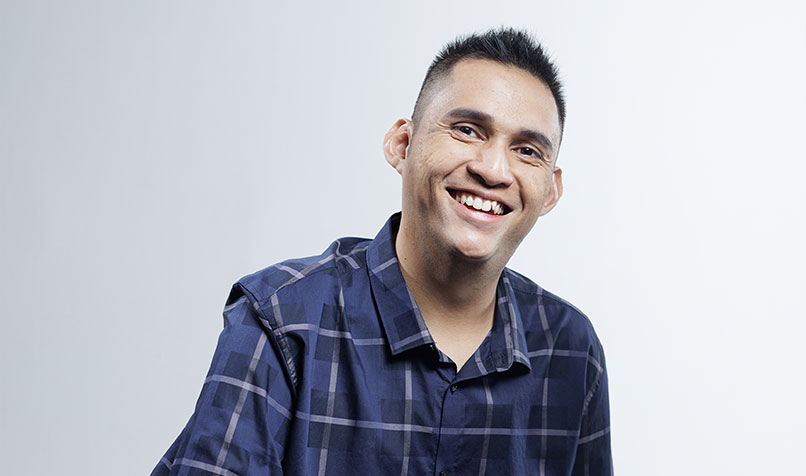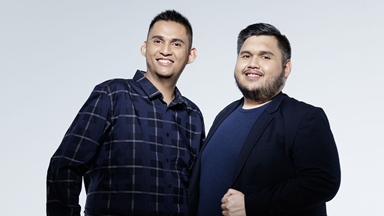Loading component...
At a glance
When Muhammad Firas Hamzah CPA was studying at the Malaysian campus of Melbourne’s Monash University, he was initially on a “pure science” path. When he opted to add a basic accounting unit to his courseload, it changed everything.
“It was a pivotal moment,” says Firas, a share trading officer at RHB Banking Group in Malaysia. “It led to me studying in Melbourne for one semester, which I really enjoyed.
“From there, I turned to the accounting career, and that led me to the CPA qualification.”
In contrast, Muhammad Haaziq Hamzah CPA, Firas’s younger brother, always had accounting on his career radar. As a secondary student, he recognised that accountants would always be in demand.
“I saw that every company had at least one accountant, and these were respected professional roles,” says Haaziq, who has left Malaysia for a role as an auditor and assistant manager at EY in Singapore.
Haaziq also considered studying science, but decided that accounting would be the better career path. “I took the business side during my foundation years, and that took me into accounting,” he says.
Like Firas, Haaziq studied at an Australian university – in his case, the University of New South Wales – and the CPA qualification came next.
Muhammad Firas Hamzah CPA
RHB Banking Group

At home in Kuala Lumpur, Firas executes equity trades for local and foreign clients at RHB, but says that his accounting background has been invaluable.
“The financial planning aspect of my accounting education is very relevant to what I do with the share trading,” Firas says.
“I manage client portfolios and provide them with market updates, so the financial planning is helpful in being clear about a client’s financial position and their goals.”
Applying his accounting skills to potential investments is one of the first steps for Firas in providing advice to clients, he says.
“Accounting is also very useful in assessing risk, in terms of applying a client’s risk tolerance to trades and understanding the level of risk they are prepared to take to meet their goals.”
The basic accounting skills Firas learned early in his studies are among those he finds most applicable to his daily work. A bedrock of accounting, Firas says, is an ability to understand financial statements and a company’s cash flow and profit and loss.
Like his brother, Firas has experience as an auditor.
“Auditing for me is the most important thing in every accounting degree,” he says. “It encourages a really detailed analysis of numbers – even a love of numbers and company financials.”
After his time in the investment industry, Firas believes he will return to accounting to resume his auditing career. Like his younger brother, he is open to working overseas.
In the long term, Firas hopes to become the CFO of a publicly listed company, where he can leverage his skill set, education and experience.
“This is the goal I’m working towards, where I can bring it all together,” says Firas.
One piece of career advice
“Be curious and don’t settle. When we stop learning, we stop growing. It doesn’t matter how long you have been in your career, the world is changing around you every day, and there is always something to learn and to keep engaged at being the best.”
Muhammad Haaziq Hamzah CPA
EY Singapore

Haaziq sees auditing as a critical skill for accountants.
“I started my career in audit around three and a half years ago, and I’m still on that path and becoming more senior within my team,” Haaziq explains.
Haaziq left Malaysia for Singapore in 2022 to take up his current role at EY.
“What I like is that you are giving clients feedback on whether their numbers are true and fair, and that means collecting evidence and supporting documents to get the proof that all the financials are correct,” Haaziq explains.
Auditing is fast paced, he adds, because accounting standards and regulations are always evolving.
“You have to be thorough and detailed and on the lookout all the time for instances of fraud,” he says.
Staying on top of auditing skills is a baseline, but auditing skills and principles are applicable across sectors – from property and manufacturing to banking.
“Auditing is critical, but it is not for everyone, and the turnover can be high,” Haaziq admits.
While he is happy in auditing, he also sees the potential to leverage those skills into a role focused on a specific sector. Haaziq sees his career continuing along its current path in professional services and through to management, where he hopes to eventually become a partner.
“I, myself, have never left the audit field and it has been good for me so far, so it’s a direction I am going to stick with for a while yet.”
One piece of career advice
“It’s not where you start, but where you finish that counts. In life, you can’t go back and change the beginning, but you can start where you are and change the ending.”

